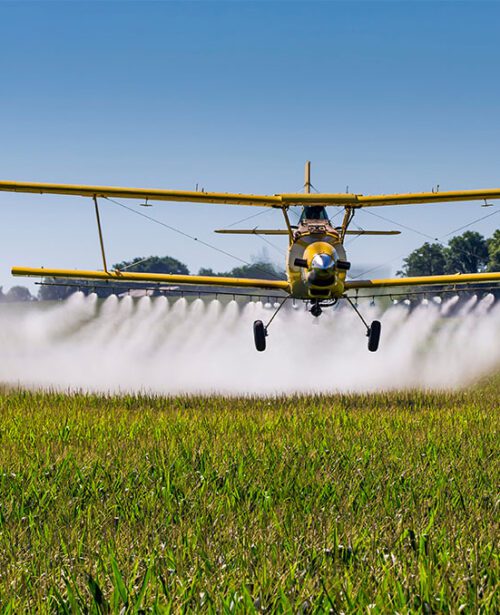by Mabi David, PANAP Agroecology in Action
It’s no longer debatable how the widespread adoption of chemicals and corporate farming have led to the destruction of our topsoil, the contamination of air and water, the sickness and suicides rampant among stricken farmers, the extinction-level losses to our biodiversity, and near-collapse of our planetary systems.
Less visible is the decline of the many alternative ways of knowing and understanding food and farming that are tied intimately to one’s geography, culture, and community life because of industrial high-input monocultures. But epistemicide is real and its consequences on traditional farming systems are just as grievous.[i]
Severing farmers from their knowledge of their seeds and the land, they forget their skills and hard-won wisdom on breeding and adapting their crops to their environmental conditions, inevitably losing their agency and autonomy that come with their associated knowledge. The practice of co-creating a wide range of situated knowledge by communities around their food production, grounded in diversity, ecology, nonviolence, and interdependence, disappears. Social cohesion erodes, where previously it is engendered and strengthened by traditional collective farming activities and practices of power sharing through participatory governance.
Backed by corporate science and advanced by a technocratic feed-the-world narrative, the hegemony of chemical-based farming limits what it considers valid agricultural knowledge and what it accepts as innovations around food production. It uses a top-down, one-size-fits all approach that concentrates power, leadership, and capital to an elite few, while insisting on a humanitarian agenda immune to critical scrutiny.
With the subordination and exclusion of the multiple ways of knowing based on the lived experience of the world’s majority, epistemicide effectively entrenches a reductive and singular pathway, one that agrochemical TNCs can monopolize and dominate. Rooted in a colonial, totalitarian worldview, epistemicide suppresses the sovereignty of self-determining populations over the food they want to eat and grow based on their unique contexts. What’s left is knowledge that is sterile, stripped of the recognition that all knowledge is socially mediated, so that it can be standardized, instrumentalized, and scaled ad infinitum solely to extract maximum profit.
Agroecology counters such terminal impacts that chemical use has on people’s knowledge systems. How?
As a science and practice, agroecology recognizes and honors the plurality of knowledge systems throughout peasant farming populations all over the world. It is transdisciplinary in its approach and sees knowledge as decentralized and heterogenous, living and complex–one that engages with and adapts to the dynamic realities of community life, its politics, culture, social mores, collective aspirations as well as struggles, etc. As a science it is rigorous and systematic, and as a practice it promotes flexibility and non-hierarchy among the many forms that agricultural and associated knowledge can come in–as scientific data and cultural wisdom, technical and practical, academic research and local knowledge, analytical and intuitive, whether handed down from generation to generation or through collective decision making, in life stories or rituals and ceremonies.
And as a movement, agroecology places importance on how these varied ways of knowing, including their creation and sharing, can embody social justice, equity, and cultural sensitivity— especially amidst the reality of competing interests, power imbalances, and unequal distribution of risks and benefits. Agroecology allows for the interrogation of concepts of control and ownership, asking who profits from the knowledge creation and what ways of knowing it potentially displaces, to ensure that the ideas, insights, and information that are generated can power people’s democracy in agriculture and revolutionize the current food system.
Agroecologies of Knowledge: How are our IPAM field learning sites fighting epistemicide in rice cultivation?
Rice is an important food staple for more than six billion people, and humanity owes the world’s rice genetic diversity to peasant farmers. Since its domestication 8,000 years ago, they have been breeding and improving varieties not only for productivity and characteristics like grain shape, color, stickiness and starch content, aroma, and texture, but also their ability to adapt to the many environmental conditions. Small-scale farmers have been able to breed rice varieties able to survive pests and diseases, and grow and thrive amidst droughts and flood, in plains and paddy fields, in coastal areas and deep water, among others. And each variety comes with extensive situated knowledge shaped by and responsive to the natural surroundings it has been cultivated in.
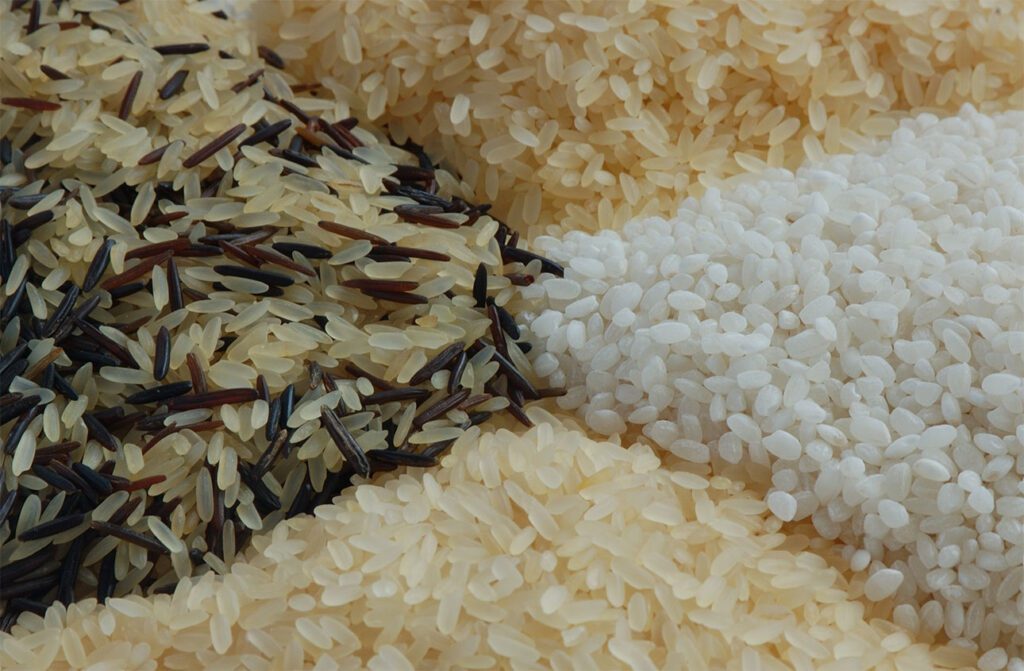
Given its economic, political, and cultural importance for Asian peoples, rice remains at the crosshairs of corporate capture and consolidation–from hybrid varieties and GMOs in industrialized production systems to the policy capture of seed laws and ex-situ seed banking, among others. The advent of the Green Revolution entrenched productivism which is linked to agrochemical use and led to the institutionalization of agricultural knowledge production, moving it from rice fields to research laboratories, from the hands of farmers to the walls of corporations. The shift effectively excluded farmers from what they have been doing for generations, snatching their wealth of experiential wisdom. Over time, as dependence on chemicals agricultural inputs took hold and much of agricultural extension work became the domain of the chemical companies as a way to market their products.
All these on top of the already existing challenges that make it challenging to continue rice farming in many countries, such as the climate crisis that brings with it extreme weather and infestations, lack of government support and neoliberal trade policies, agricultural land conversion, and decreasing returns for farmers.
Here we highlight just a few of the many ways our FLSs safeguard the significant bodies of site-specific agricultural and associated knowledge and the communities of practice around rice farming to counter the threat of epistemicide through agroecology.
The Philippines: Magsasaka at Siyentipiko para sa Pag-unlad ng Agrikultura (MASIPAG)
MASIPAG recenters farmers’ knowledge in rice production in different parts of the Philippines. A nationwide network of farmers and scientists, MASIPAG advances strong farmer-led research and training by combining the technical knowledge of scientists with the experiential knowledge of farmers.
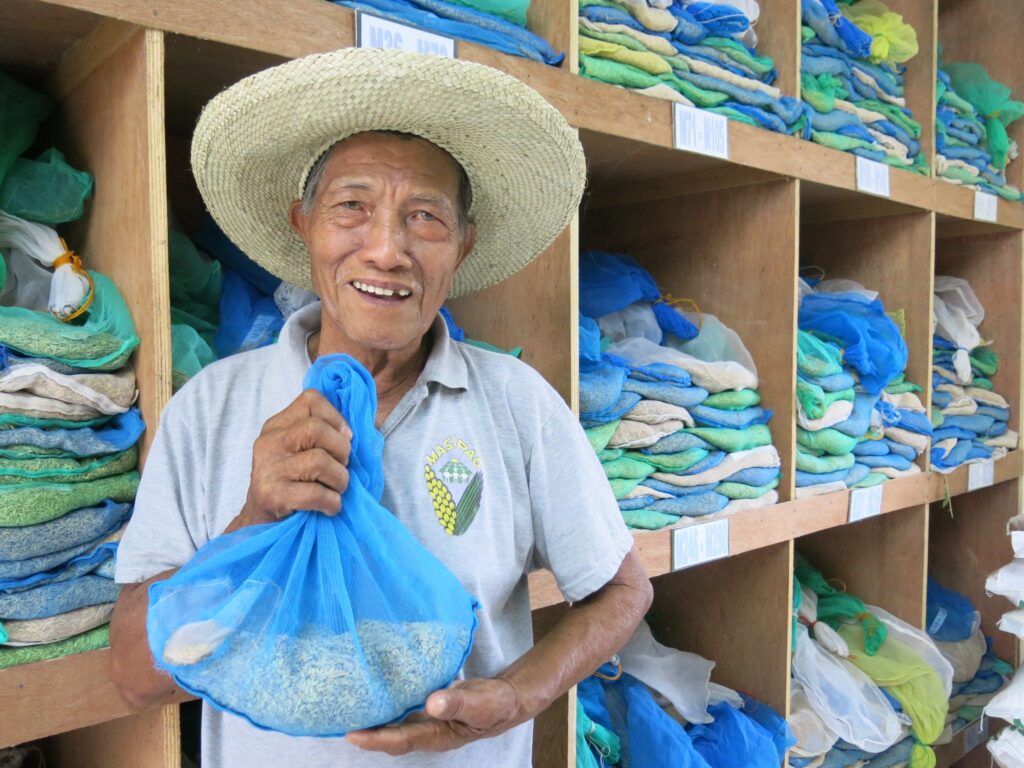
Because it believes that farmer empowerment is inextricable from their control of seeds, MASIPAG’s participatory rice breeding is designed to liberate farmers from the use of HYVs as farmers learn from each other’s experiences to develop, grow, and save high-quality rice that is appropriate to their needs, environment, and resources.
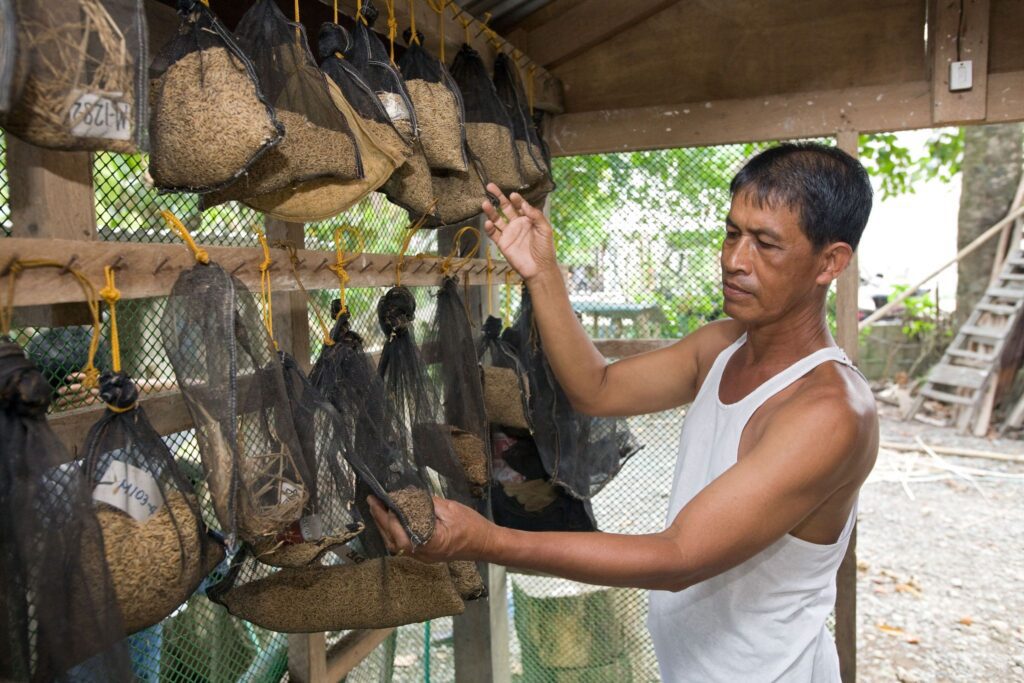
Farmer-led seed systems have an important role in meeting the food needs of the communities especially during the climate emergency. These community-based seed systems also help protect their culturally significant cultivars and the diverse local knowledge that intersect with their rice farming practices, which are implicated in an environment’s ability to adapt to climate change.
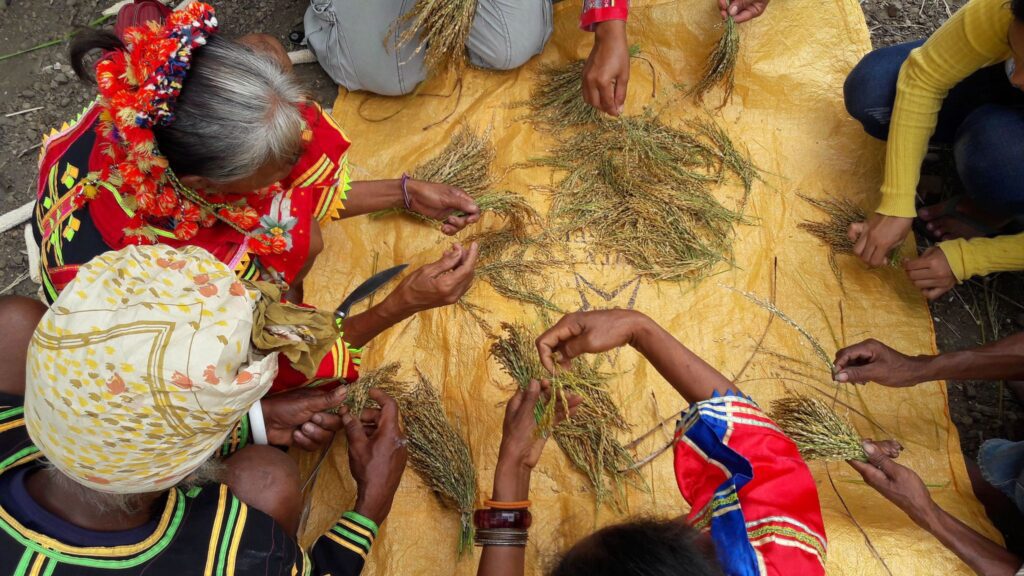
Today, MASIPAG protects more than two thousand varieties of Indigenous, farmer-bred, and locally-adapted varieties of rice, including 18 drought-tolerant, 12 flood-tolerant, 20 salt-water tolerant and 24 pest and disease tolerant varieties. It also serves as the lead convenor of the Stop Golden Rice Network, which is at the forefront of the two-decades-long fight to stop the commercialization of the genetically modified rice that is being advanced by IRRI and the Bill and Melinda Gates Foundation.
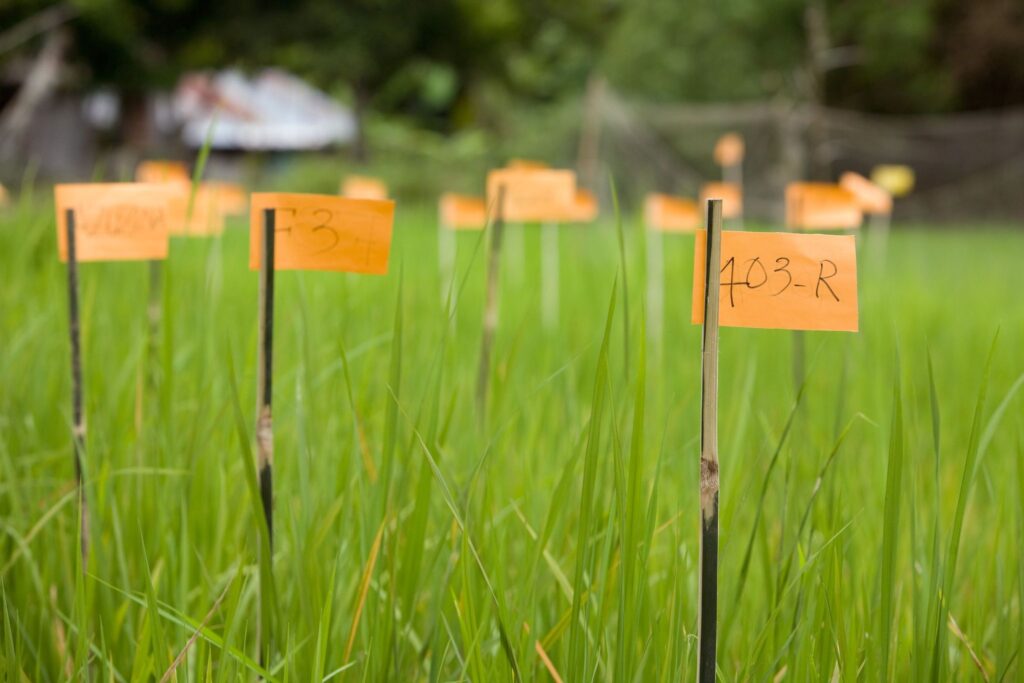
As the lead convenor of the Stop Golden Rice Network, MASIPAG is also one of the petitioners against the commercialization of Golden Rice that is being advanced by IRRI and the Bill and Melinda Gates Foundation. The campaign experienced a significant win recently when a Philippine court ruled against the government’s actions that granted permits for the commercial release of Golden Rice as well as genetically modified (GM) Bt eggplant.
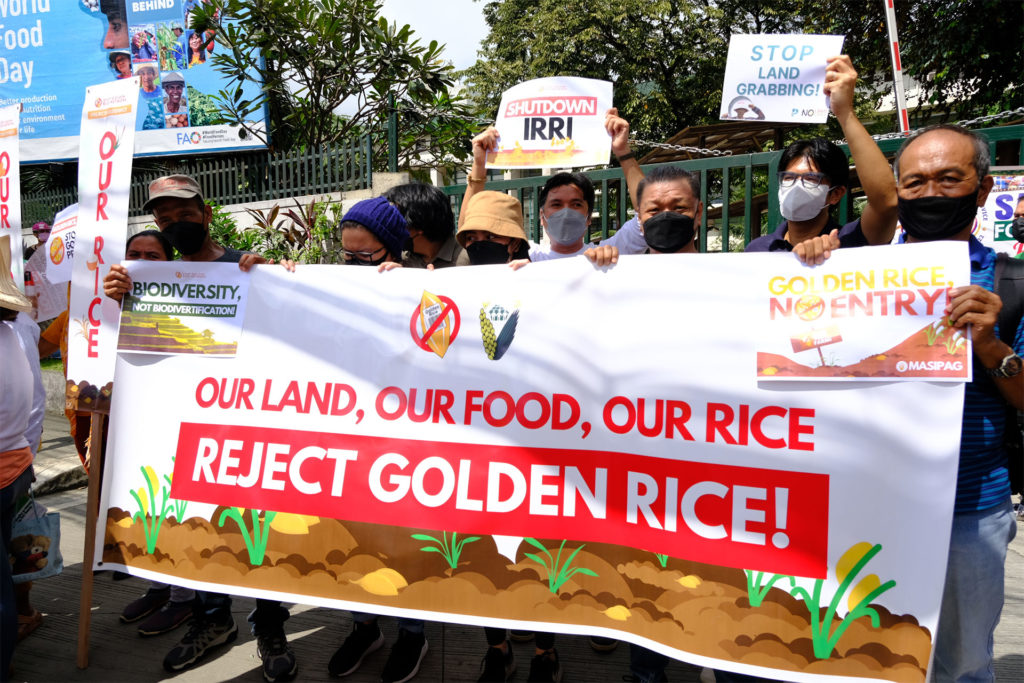
Bangladesh: Bangladesh Resource Center for Indigenous Knowledge (BARCIK)
Recognizing that farmers possess deep stores of practical knowledge and therefore must play a leading role in the research process, BARCIK has found peer learning to be more effective in creating appropriate solutions and innovations amidst extreme conditions. The organization witnessed how these farmer-led solutions are more accessible and therefore more likely to be readily adopted by their fellow farmers.
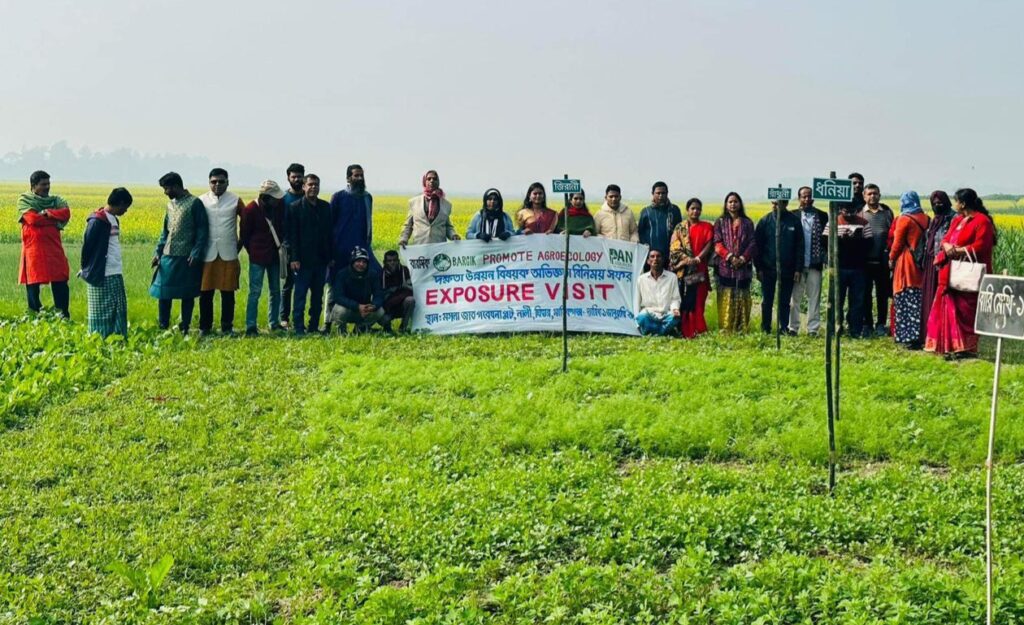
In collaboration with PANAP, BARCIK has an ongoing farmer-led, on-farm applied agricultural research known as Participatory Rice Variety Selection trial, to identify and promote the cultivation of native rice landraces that can adapt and thrive in the Manikganj district, especially during monsoon season. The area is prone to excessive rainfall and flooding that lead to water-stagnation and stem borer infestation of the irrigated harvest, hampering the rain-fed rice growing period that follows afterwards.
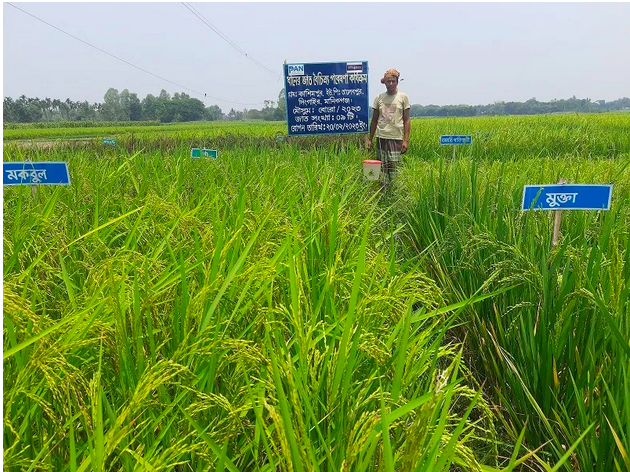
Through the participatory research, the farmers demonstrated agronomic proficiency in their experimentation and were able to cultivate distinct rice landraces that had favorable characteristics that met their specific needs. These include 1) the Mokbul variety which displayed resistance to stem borers, Blast disease, and stink bugs without the need for pesticides, as well as a shorter life cycle that allows for mustard cultivation; 2) the Rajvhog variety that similarly exhibited better adaptability to the local climate such as resistance to diseases and required minimal irrigation, and fine grains for human consumption and exceptional quality straw to serve as cattle fodder.
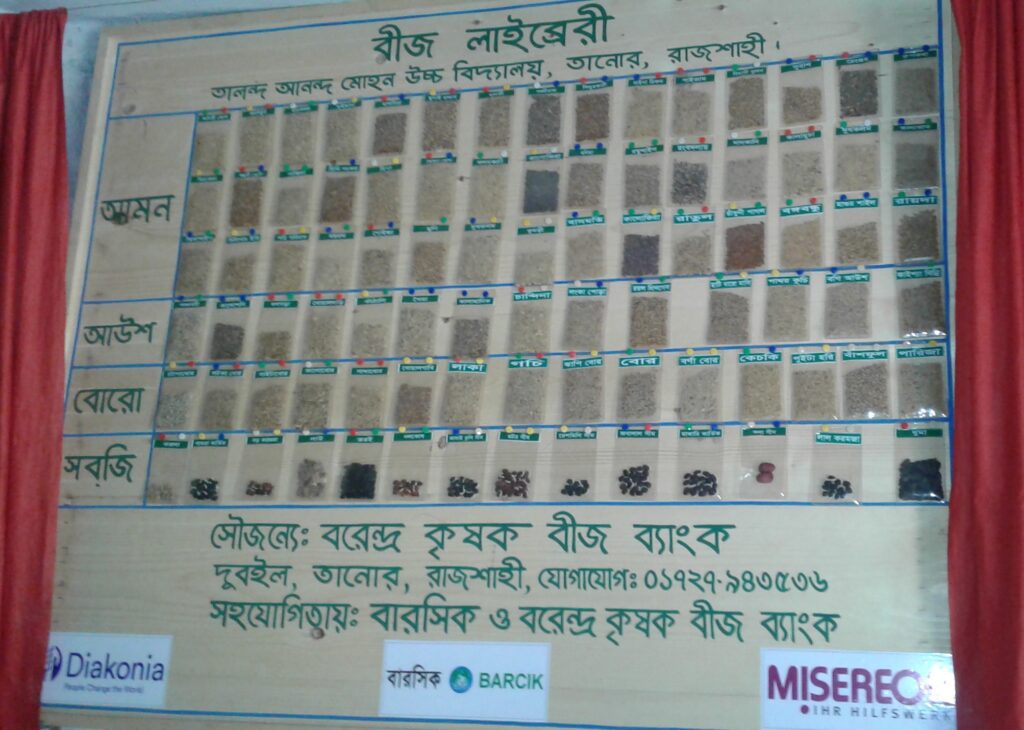
A community seed bank preserves the diverse landraces bred by these farmer-scientists and helps educate other farmers on the need to protect rice genetic diversity to be able to adapt to our changing climate. The farmers also shared seeds from their home-based seed libraries with neighboring farmers who are interested in cultivating the rice varieties, which serves to strengthen the collaborative and participative ecosystem of knowledge production vital to combating epistemicide.
India: Thanal AgroEcology Centre (TAEC)
Rice grows in diverse environments in India, and it is not rare for many unique crop varieties to be available at the local level. A participatory way to characterize, document, and protect these local landraces is with a community-based diversity block, which works as an experimental farm managed by farmers and scientists.
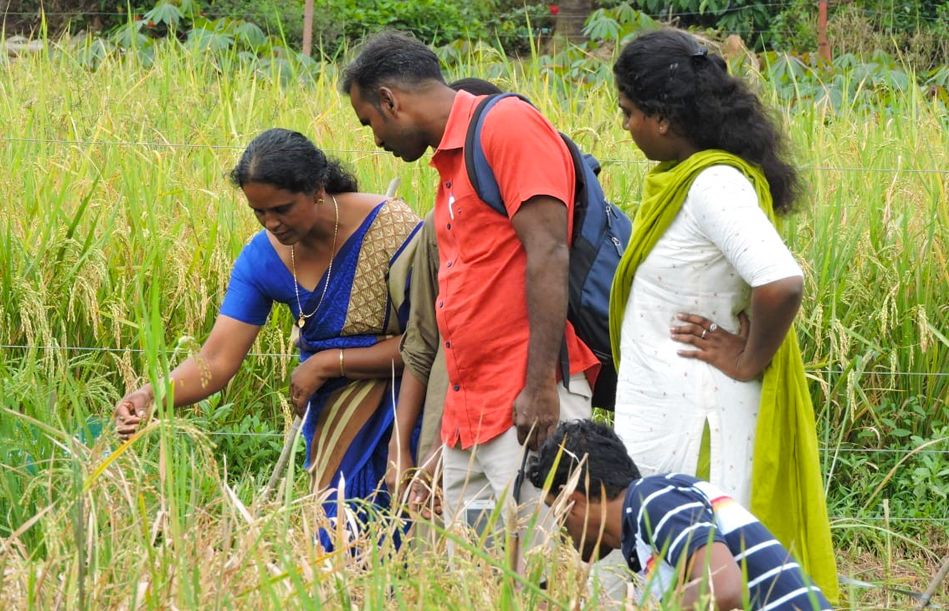
Thanal’s Rice Diversity Block conserves more than three hundred traditional rice varieties, 180 of which are from Kerala. It is the largest live collection of paddy varieties in the state, and has served to inspire many farmers, who have gone on to create more diversity blocks from the seeds collected in Thanal.
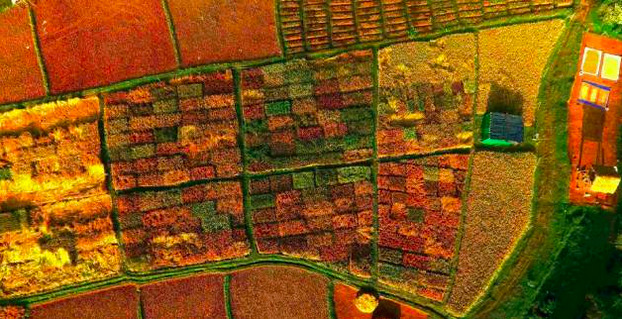
While organized for research and development purposes, a diversity block also emphasises the important connection of the crops to the local environment and community. It studies the use of traditional farming practices shaped by their local contexts, promotes community sensitization to the value of these native and indigenous germplasms, and makes these seeds more accessible to the farming communities and conservation in seed banks.
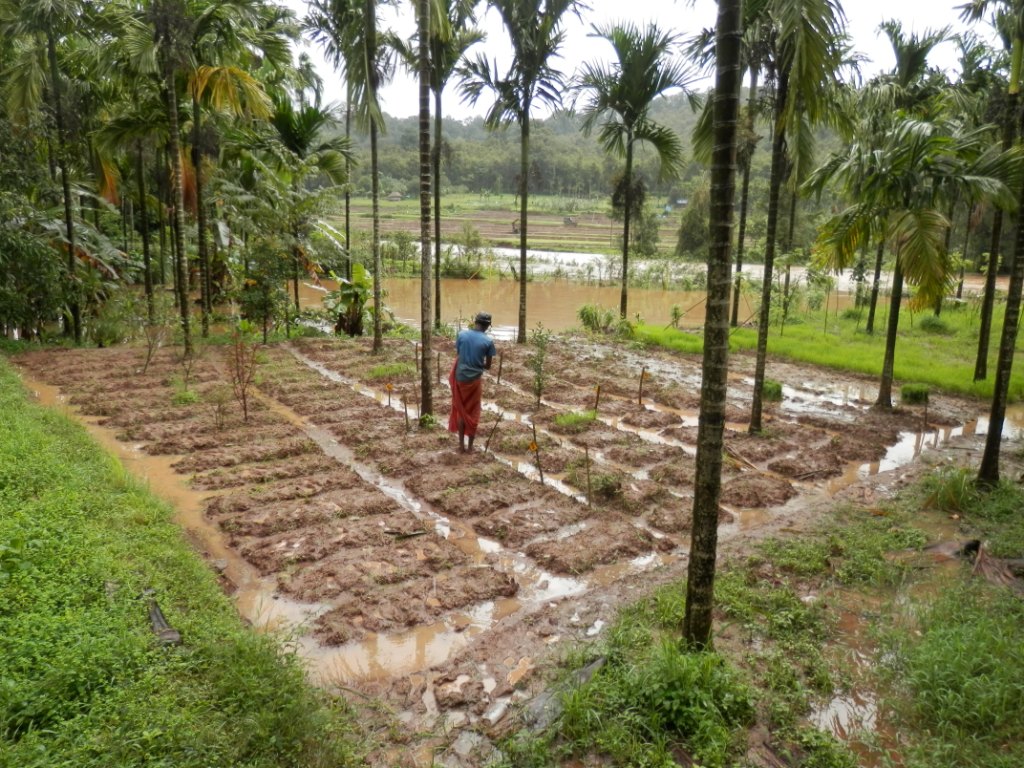
Thanal conducts a rice festival called Ikki Jathre where indigenous farmers co-create and share knowledge on the diverse rice cultures in India. The farmers also use the festival as an opportunity to exchange seeds and collect samples of different varieties to test their performance in their own fields. The festival is part of the Save Our Rice campaign, a national campaign and people-led food sovereignty movement in India coordinated by Thanal to protect traditional wisdom in rice cultivation and push for the adoption of agroecology in rice ecosystems and the preservation of rice diversity, in particular those that can survive the current climate pressures. The campaign encourages farmers, states, and local governments to adopt indigenous seeds and fight GMOs and the use of toxic chemicals. Because of the Save Our Rice campaign, there are 26 community-based rice diversity blocks, 21 community-level seed banks, 1,054 indigenous rice seeds available in collection, and 21 indigenous organic rice trade networks in seven states in India.
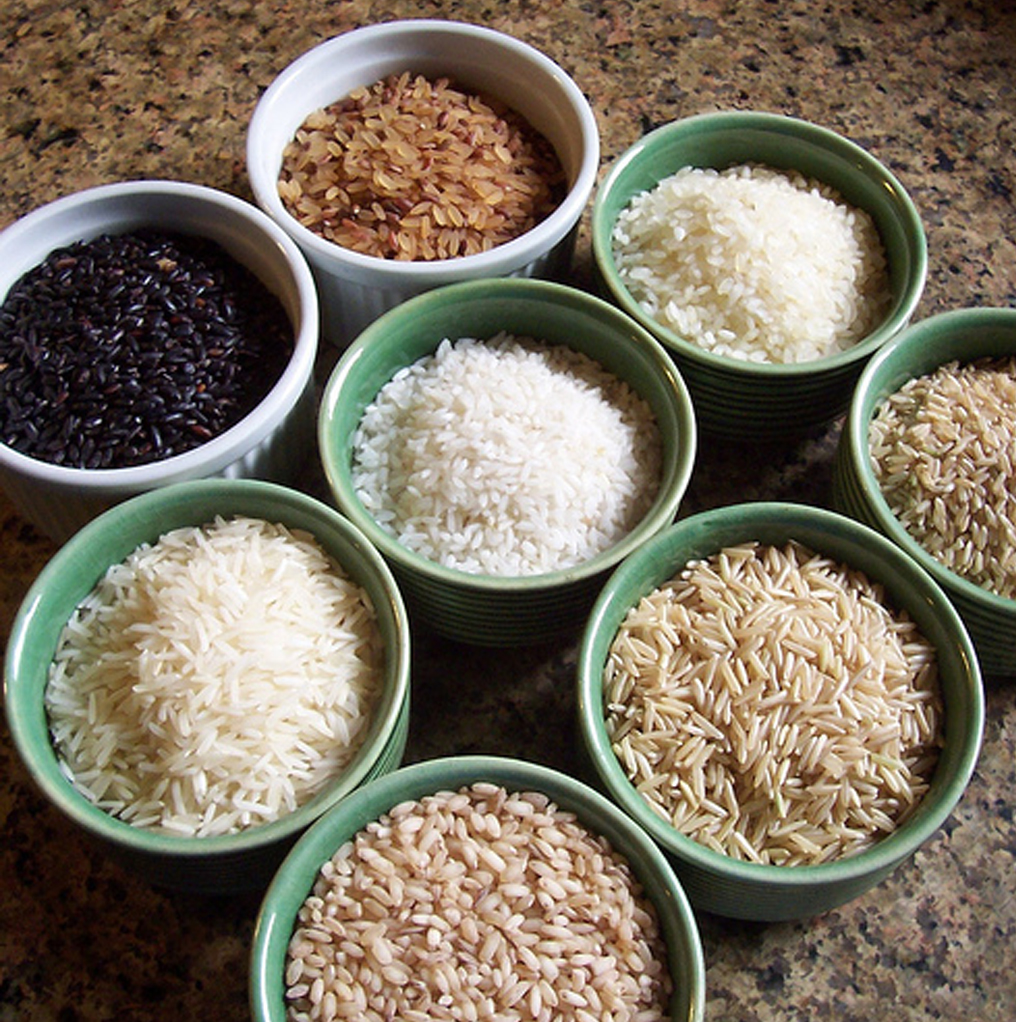
Conclusion
Diverse knowledge systems that emerge from the practices of peasant farming communities continue to be under constant attack through the gradual, insidious process of dispossession and deligitimisation, their power eroding over time until they eventually disappear.
Through the work of the partner field learning sites that we highlight here (and others like them), we see how agroecology–by valuing interdependence, context, and diversity–creates and connects many different ways of knowing that reclaim the legitimacy and effectiveness of just and ecological alternatives versus the top-down, homogenous, and profit-seeking solutionism of corporate agriculture and its epistemicidal consequences that creep up with chemical use.
According to rice farmers attending BARCIK’s field day for their applied rice research, “Native rice is what preserves our heritage…We cannot produce chira, muri (fried rice), pitha (cakes) when we cultivate high-yielding rice. These rice varieties are not suitable to produce those native foods, which have an intricate relationship with our culture and heritage…. Our culture is embedded with native varieties of rice. In the same way, local rice is the biggest helper for farmers to deal with natural calamities.”
We learn from the work of our field learning sites that our ability to counter epistemicide rests on putting farmers first and foremost–reclaiming their agency through sovereignty over their resources and recentering their discipline and expertise as reliable and of great value. We see how vital it is to expand our critical inquiries in food and agriculture so that the learning is participatory and rooted in community life. Both ensure that the knowledge we create on the ground becomes appropriate, adaptable, and culturally meaningful–which are necessary given the challenges faced by our farmers and communities in meeting our dietary needs are now increasing in complexity, aggravated by a rapidly changing climate. ###
___________
[i] Vandana Shiva’s prescient book Monocultures of the Mind, originally published in 1993, provides a clear and accessible in-depth discussion of the delegitimisation and disappearance of alternative knowledge systems as monocultures become prevalent in food and agriculture.

